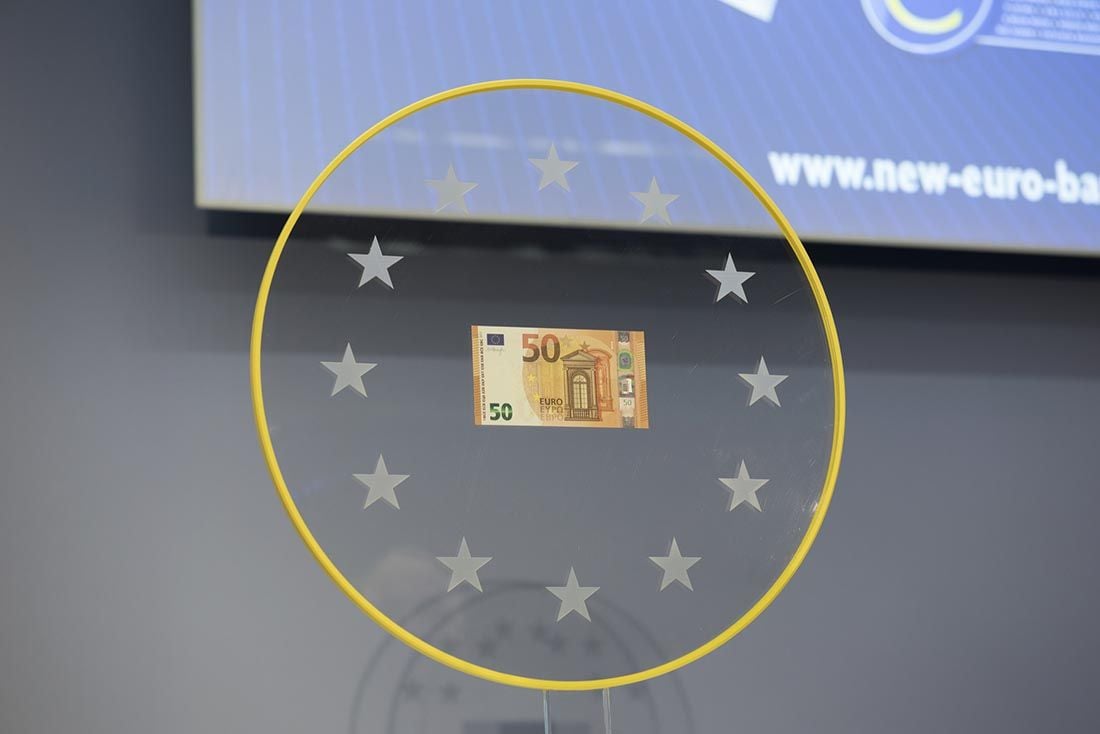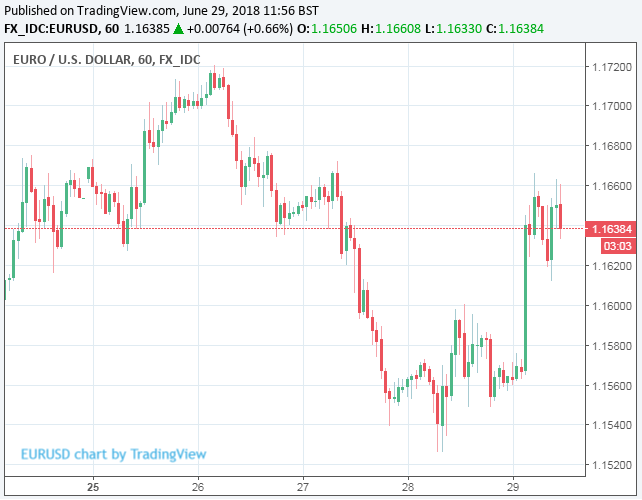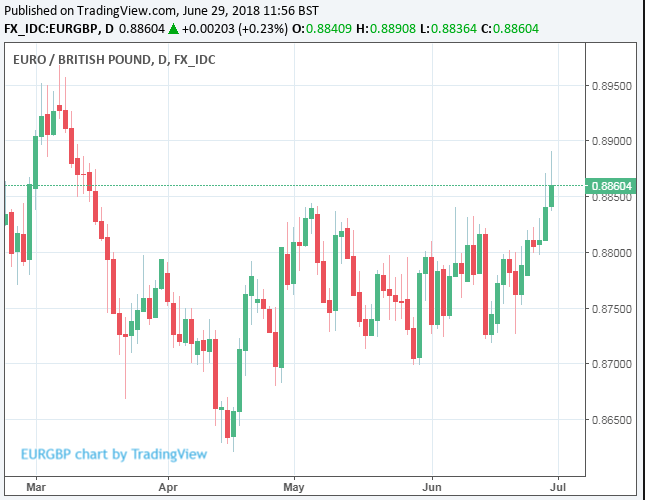Euro Surges into Month-end after Inflation Outlook Brightens and as Markets Cheer Merkel's Reprieve
- Written by: James Skinner
-Eurozone inflation hits European Central Bank target of 2% in June.
-But will moderate a touch during months ahead, say Capital Economics.
-Still, the inflation outlook has brightened, vindicating the ECB's optimism.

© European Central Bank
The Euro rose sharply against the Dollar and other major currencies Friday after official data showed Eurozone inflation picking up further in June, seemingly vindicating the European Central Bank for its recent optimism on the subject.
Headline Eurozone inflation rose 10 basis points to 2% during June, which is on the button as far as the ECB's inflation target is concerned, although much of the recent increase has been driven by a sharp rise in oil prices.
The more important measure of "core inflation", which removes volatile commodity items such as oil from the goods basket and so is seen as a more accurate representation of domestically generated inflation pressure, fell by 10 basis points to 1% during the current month.
Eurostat says food, alcohol and tobacco, all of which are excluded from the core measure, made the most significant contribution to the upward move in inflation after the rise in energy costs. Non-energy industrial goods and services prices also saw increases however.
"June’s inflation data are unlikely to change the ECB’s assessment of the outlook for monetary policy. The rise in the headline rate of inflation from 1.9% in May to a 16-month high of 2.0% was in line with the consensus (and our own) forecast, and almost entirely reflected an increase in energy inflation," says Jack Allen, a senior European economist at Capital Economics.
Currency markets care about the inflation data because consumer price pressure have a direct bearing on the interest rate and other monetary policy decisions of the European Central Bank, and it is changes in rates themselves that are the raison d'être for most moves in exchange rates.
Changes in interest rates, or hints of them being in the cards, are only made in response to movements in inflation but impact currencies because of the push and pull influence they have on international capital flows and their allure for short-term speculators.

Above: Euro-to-Dollar rate shown at hourly intervals.
The Euro was quoted 0.83% higher against the Dollar a short time after the release while the Euro-to-Pound rate was 0.22% higher at 0.8862, translating into a 0.25% loss for the Pound-to-Euro rate that was left trading around 1.1278.

Above: Euro-to-Pound rate shown at hourly intervals.
"We think that energy inflation will push the headline rate up again in July. But we forecast oil prices to fall over the rest of the year, dragging energy and headline inflation back down again," Allen adds. "We expect the continued recovery in the labour market to prompt a gradual increase in wage growth. In turn, this should support a slow but steady pick-up in core inflation, confirming to policymakers at the ECB that they are right to be normalising policy."
European Central Bank in Focus
The European Central Bank said in June it will continue buying €30 billion of European government bonds each month until the end of September 2018, at which point the rate of monthly purchases will be cut to €15 billion before being reduced to zero at the end of December. This should have been a positive development for the Euro.
However, the ECB also quashed earlier hopes among traders that it would be in a position to raise interest rates from their record lows in June 2019, dealing a crushing blow to the single currency and a broad swathe of forecasters who had hoped that an end to the era of ultra-low interest rates was near.
The decision to cease new bond purchases is contingent on the inflation picture evolving in line with the central bank's forecasts, which were upgraded this month.
The ECB now expects Eurozone inflation to sit at 1.7% for the 2018 year which, up from the 1.4% forecast issued in March, is not far off from the central banks "close to but below" 2% target. The forecasts for inflation in 2019 was held steady at 1.7% but the projection for 2020 was upgraded from 1.4% to 1.7%.
EU Summit Yields Euro Reprieve
Friday's price action and data also come as markets cheer a last minute European Council commitment to managing migration that may be enough to satisfy the Italian government while saving Chancellor Angela Merkel's administration from collapse in Germany.
Merkel's coalition partner, a Bavarian conservative party, had demanded a series of contentious measures of Merkel's Christian Democratic Union under threat of closing its border with Austria and withdrawing support for the coalition.
This threatened to see more migrants kept in Italy, a main landing stage for boats arriving from Libya, and to stoke further hostilities between the EU and Italian government. The League side of the Italian coalition was elected in March on an anti-migration ticket.
Fears were that without some kind of commitment from European leaders to resolving the issue, Bavaria's conservatives will have pulled their support for Merkel ahead of a local election in four months time, leading to a collapse of the German government.
The European Council said Friday; "The European Council reconfirms that a precondition for a functioning EU policy relies on a comprehensive approach to migration which combines more effective control of the EU’s external borders, increased external action and the internal aspects, in line with our principles and values. This is a challenge not only for a single Member State, but for Europe as a whole
Advertisement
Get up to 5% more foreign exchange by using a specialist provider to get closer to the real market rate and avoid the gaping spreads charged by your bank when providing currency. Learn more here




